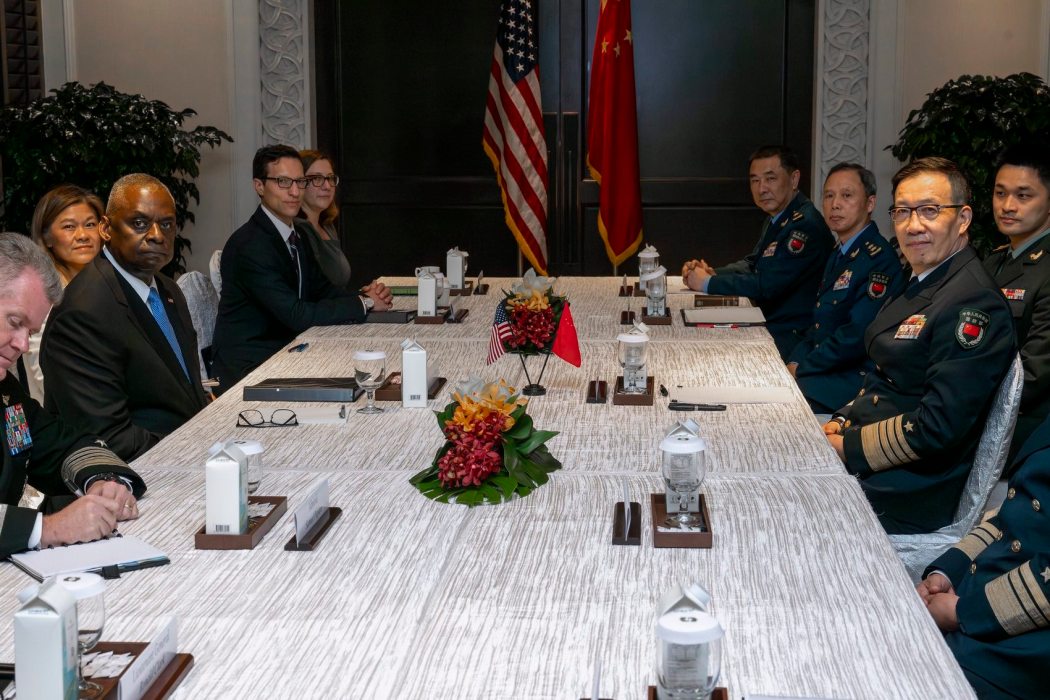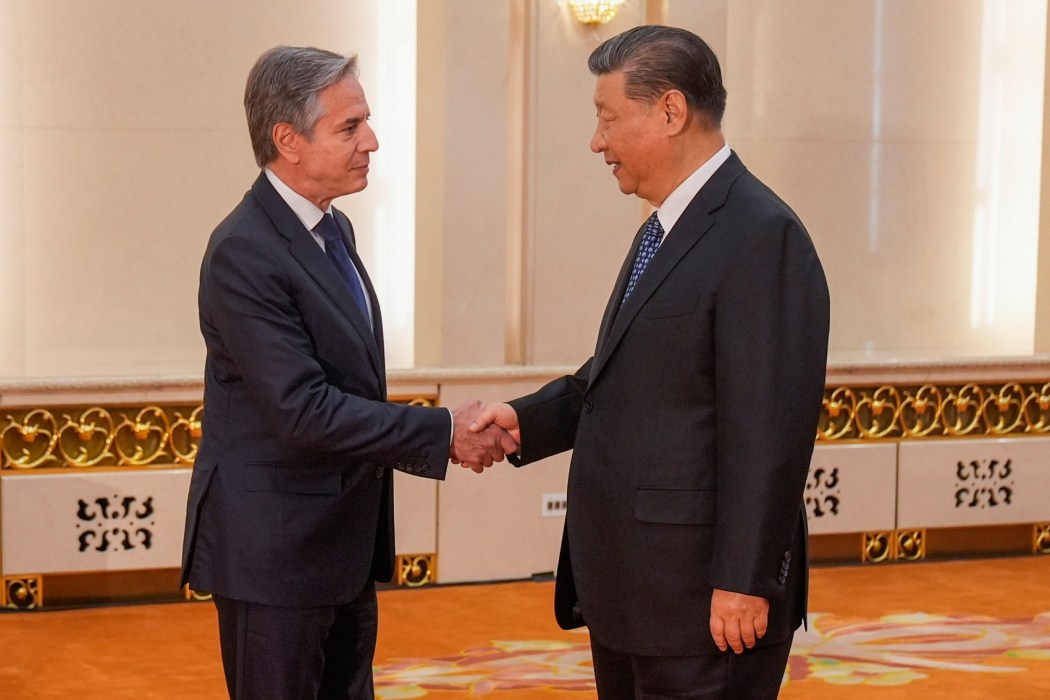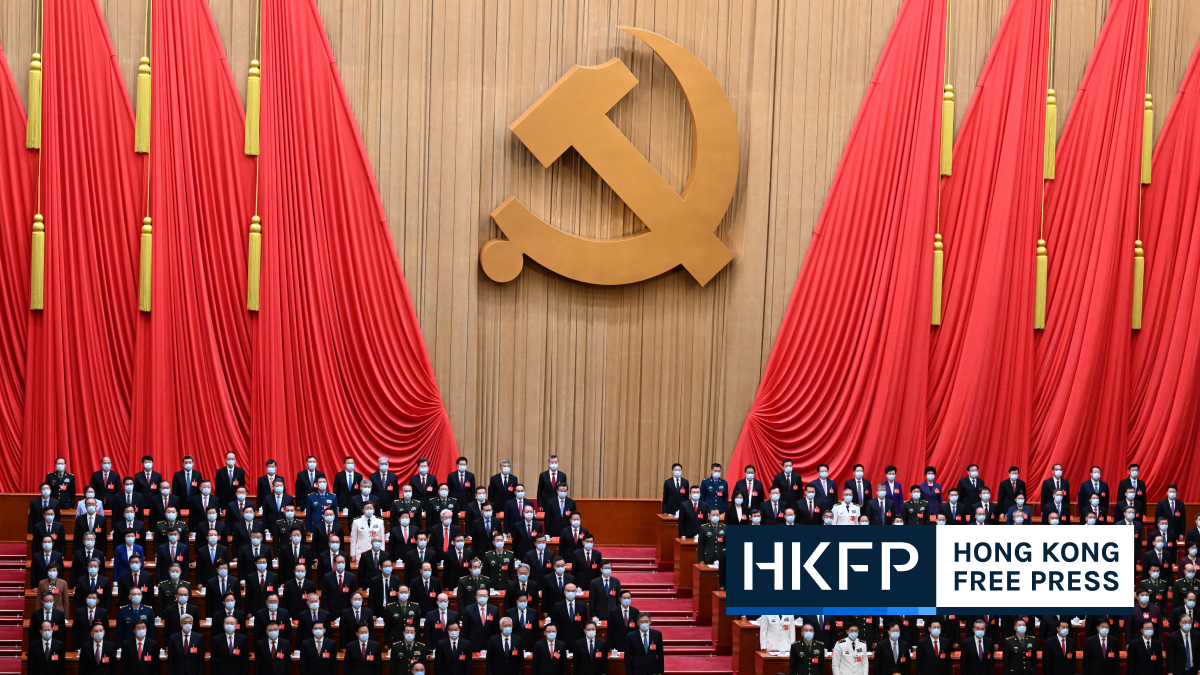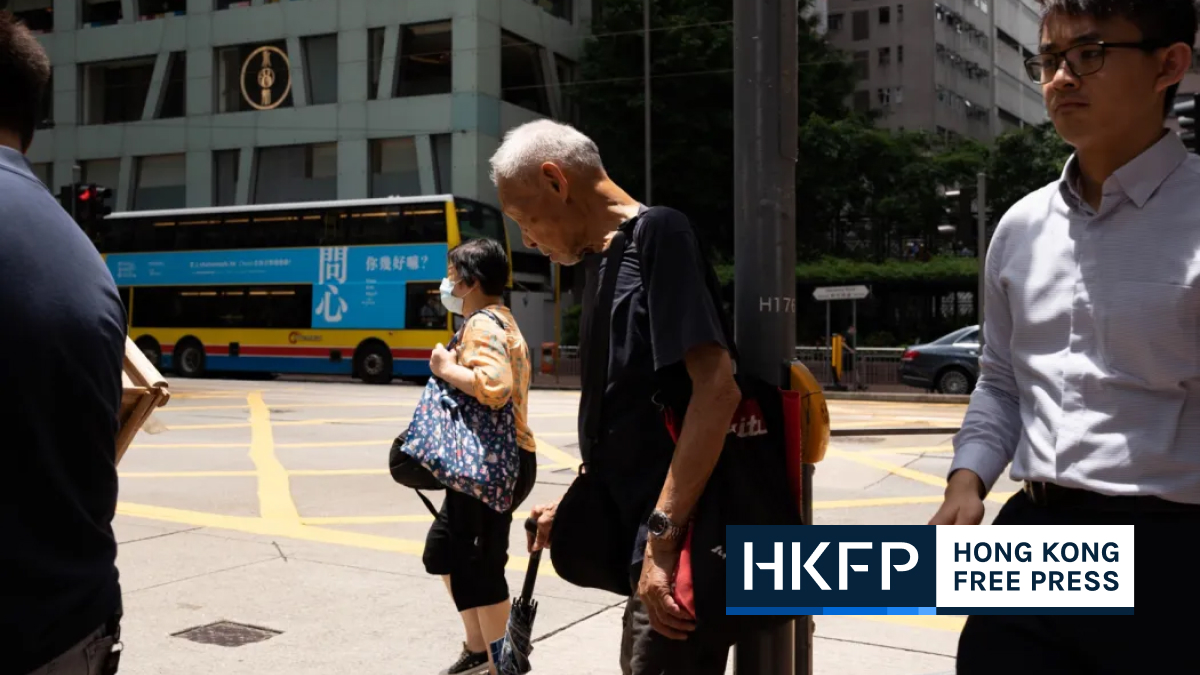By Jing Xuan Teng and Martin Abbugao
The United States and China will resume military-to-military communications “in the coming months”, US Defense Secretary Lloyd Austin said Friday, as Beijing hailed the “stabilising” security relations between the countries.

Austin met with his Chinese counterpart Dong Jun on the sidelines of the Shangri-La Dialogue in Singapore in the first substantive face-to-face talks between the two defence chiefs in 18 months.
Dong and Austin met for over an hour at the luxury hotel hosting the security forum that is attended by defence officials from around the world and in recent years has become a barometer of US-China relations.
Austin said telephone conversations between US and Chinese military commanders would resume “in the coming months”, according to a readout released by the Pentagon.
He also welcomed plans for a “crisis-communications working group” with China by the end of the year, the statement said.
Describing the talks as “positive”, Chinese defence spokesman Wu Qian told reporters that military-to-military relations were “currently stopping their decline and stabilising”.
Wu cautioned that it was not possible for Beijing and Washington to solve all bilateral problems in one meeting, but said “talking is better than not talking”.
This year’s Shangri-La Dialogue comes a week after China held military drills around Taiwan and warned of war over the US-backed island following the inauguration of President Lai Ching-te, who Beijing has described as a “dangerous separatist”.
Self-ruled Taiwan, which Beijing considers part of its territory, tops the list of disputes between the rivals.
China is also furious over the United States’ deepening defence ties in the Asia-Pacific, particularly with the Philippines, and its regular deployment of warships and fighter jets in the Taiwan Strait and South China Sea.
Beijing views this as part of a decades-long US effort to contain it.
US President Joe Biden’s administration and China have been stepping up communication to ease friction between the nuclear-armed rivals, with Secretary of State Antony Blinken visiting Beijing and Shanghai last month.
A key focus has been the resumption of military-to-military dialogue, which is seen as critical to preventing flashpoint disputes from spinning out of control.

China scrapped military communications with the United States in 2022 in response to then-US House Speaker Nancy Pelosi’s visit to Taiwan.
Tensions between Washington and Beijing were stoked further during 2023 by issues including an alleged Chinese spy balloon that was shot down over US airspace, a meeting between Taiwan’s then-president Tsai Ing-wen and Pelosi’s successor Kevin McCarthy, and American military aid for Taipei.
The two sides agreed after a summit between Chinese leader Xi Jinping and Biden last November to restart high-level military talks.
That includes a communications channel between the US Indo-Pacific Command chief and Chinese commanders responsible for military operations near Taiwan, Japan and in the South China Sea.
Pressure points
Chinese and American forces have had a series of close encounters in the disputed waterway that China claims almost entirely.

Austin warned prior to Biden and Xi agreeing to resume military-to-military dialogue that accidents have the potential to spiral out of control, especially in the absence of open lines of communication between American and Chinese forces.
Friday’s meeting between Austin and Dong follows a phone call between the pair in April, and offers hope of further military talks to cool tensions.
Austin’s last significant interaction with a Chinese counterpart was in November 2022 when he met with Wei Fenghe in Cambodia.
Wei was subsequently replaced by Li Shangfu, who shook hands and spoke briefly with Austin at the Shangri-La Dialogue in 2023 but did not hold a formal meeting with him.
Austin and Dong will give speeches this weekend at the Shangri-La Dialogue in which they are expected to touch on a range of their nations’ pressure points.
The United States, increasingly worried about China’s fast-developing military capabilities, has been strengthening its alliances and partnerships in the region to counter China’s growing assertiveness over Taiwan and in the South China Sea.
In the meeting, Austin underscored the United States’ commitment to the one China policy, but insisted that it would continue to “fly, sail and operate” wherever international law allowed, the Pentagon readout said.
Philippine President Ferdinand Marcos, who has sought to deepen defence cooperation with the United States as he stands up to Chinese actions in waters off the Southeast Asia country, will deliver the Shangri-La Dialogue’s keynote speech on Friday.
Dateline:
Singapore
Type of Story: News Service
Produced externally by an organization we trust to adhere to high journalistic standards.
Support HKFP | Policies & Ethics | Error/typo? | Contact Us | Newsletter | Transparency & Annual Report | Apps
Help safeguard press freedom & keep HKFP free for all readers by supporting our team

LATEST FROM HKFP
HKFP has an impartial stance, transparent funding, and balanced coverage guided by an Ethics Code and Corrections Policy.
Support press freedom & help us surpass 1,000 monthly Patrons: 100% independent, governed by an ethics code & not-for-profit.









